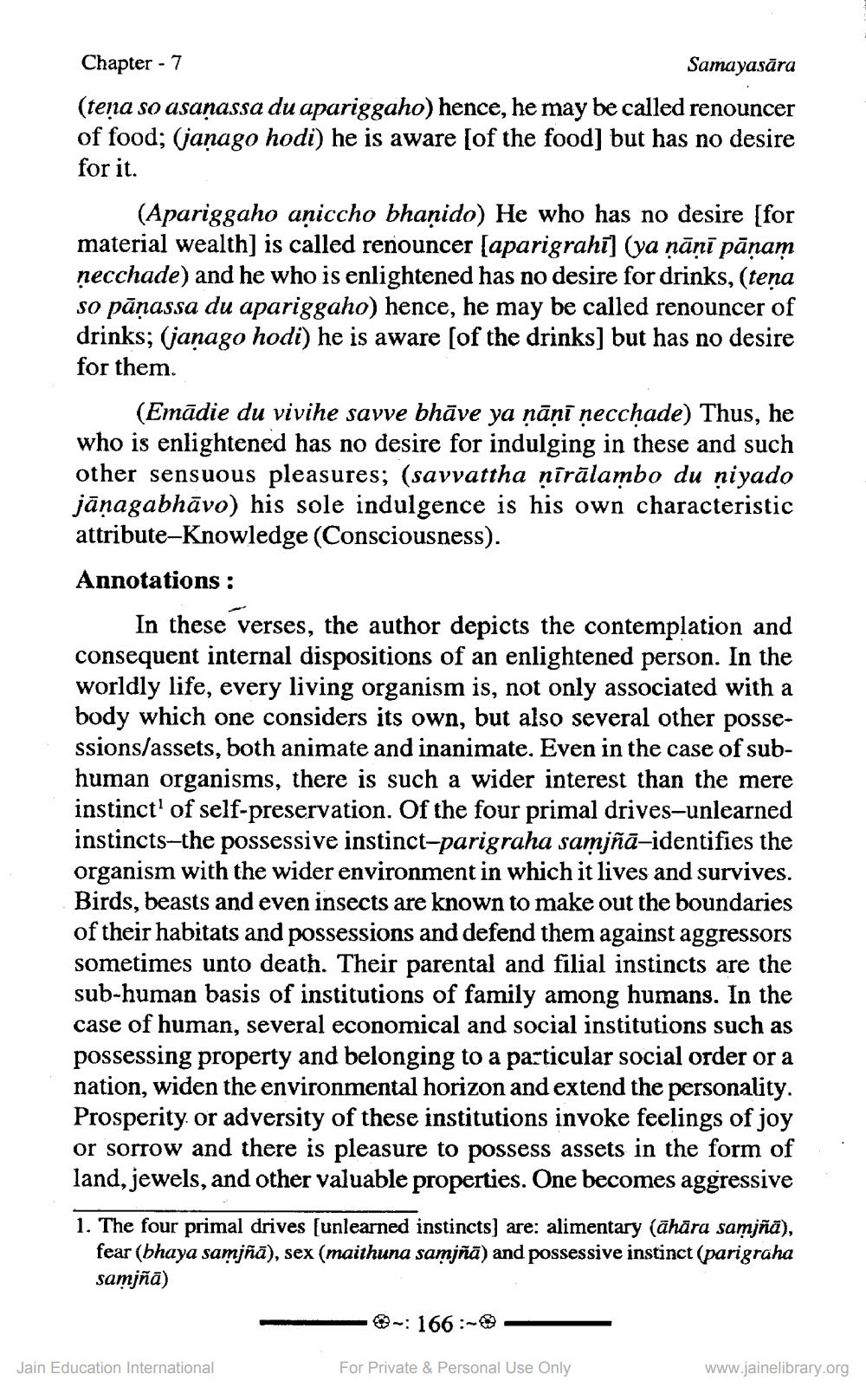________________
Chapter -
-7
Samayasāra (teņa so asanassa du apariggaho) hence, he may be called renouncer of food; (jaṇago hodi) he is aware [of the food] but has no desire for it.
(Apariggaho aniccho bhanido) He who has no desire [for material wealth] is called renouncer [aparigrahī] (ya ṇāṇī pāṇam necchade) and he who is enlightened has no desire for drinks, (tena so pāṇassa du apariggaho) hence, he may be called renouncer of drinks; (jaṇago hodi) he is aware [of the drinks] but has no desire for them.
(Emādie du vivihe savve bhāve ya ṇāṇī necchade) Thus, he who is enlightened has no desire for indulging in these and such other sensuous pleasures; (savvattha ṇīrālambo du niyado jāṇagabhāvo) his sole indulgence is his own characteristic attribute-Knowledge (Consciousness).
Annotations:
In these verses, the author depicts the contemplation and consequent internal dispositions of an enlightened person. In the worldly life, every living organism is, not only associated with a body which one considers its own, but also several other possessions/assets, both animate and inanimate. Even in the case of subhuman organisms, there is such a wider interest than the mere instinct' of self-preservation. Of the four primal drives-unlearned instincts-the possessive instinct-parigraha samjñā-identifies the organism with the wider environment in which it lives and survives. Birds, beasts and even insects are known to make out the boundaries of their habitats and possessions and defend them against aggressors sometimes unto death. Their parental and filial instincts are the sub-human basis of institutions of family among humans. In the case of human, several economical and social institutions such as possessing property and belonging to a particular social order or a nation, widen the environmental horizon and extend the personality. Prosperity or adversity of these institutions invoke feelings of joy or sorrow and there is pleasure to possess assets in the form of land, jewels, and other valuable properties. One becomes aggressive
1. The four primal drives [unlearned instincts] are: alimentary (āhāra samjñā), fear (bhaya samjñā), sex (maithuna samjñā) and possessive instinct (parigraha samjñā)
Jain Education International
-:166-0
For Private & Personal Use Only
www.jainelibrary.org




